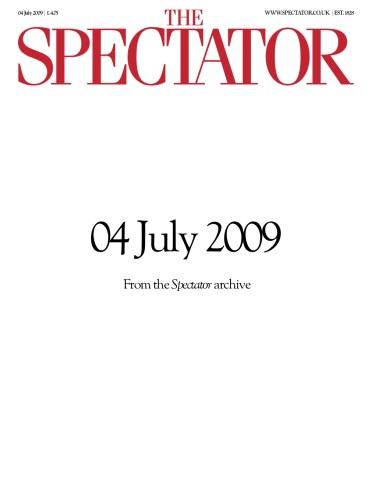Bad
As Mark Earls writes on page 16, the rush to mourn Michael Jackson has been matched only by the surge of instant jokes about the singer — many of them in catastrophically poor taste. Our very own Taki lets one or two out of the bag this week (see page 44). Some say these one-liners

